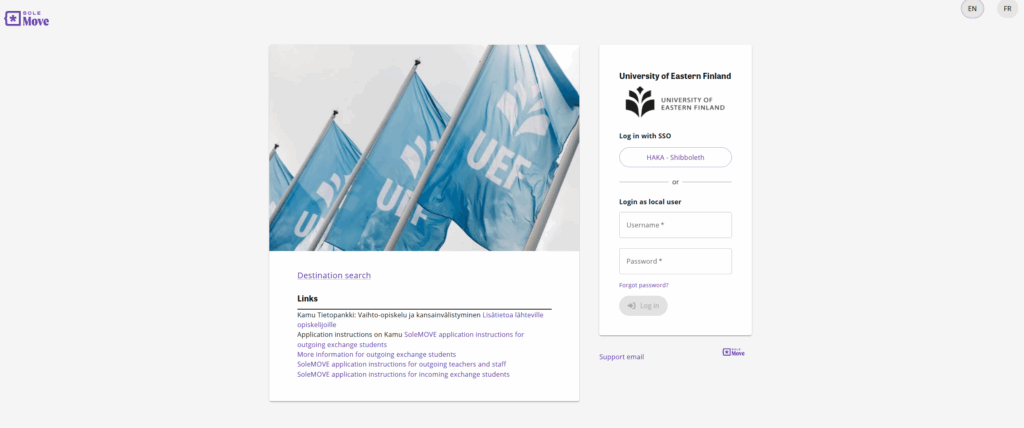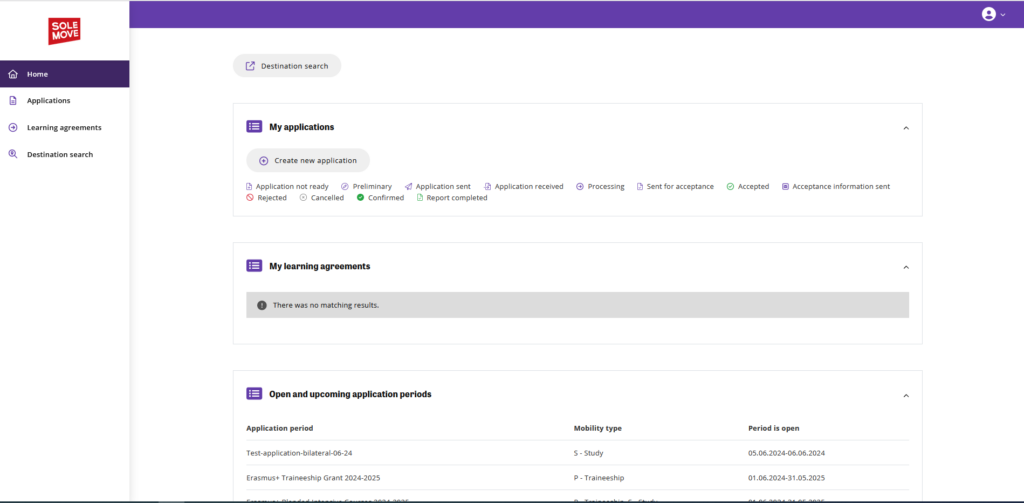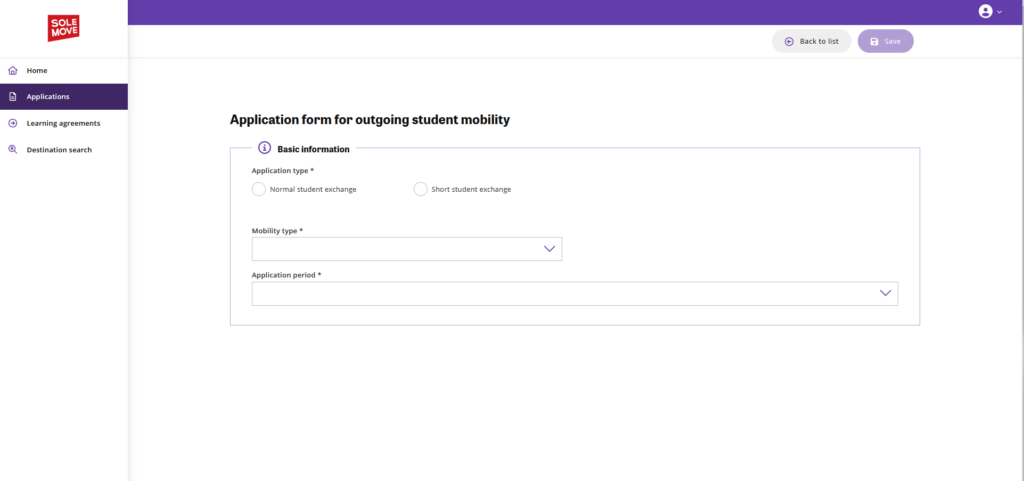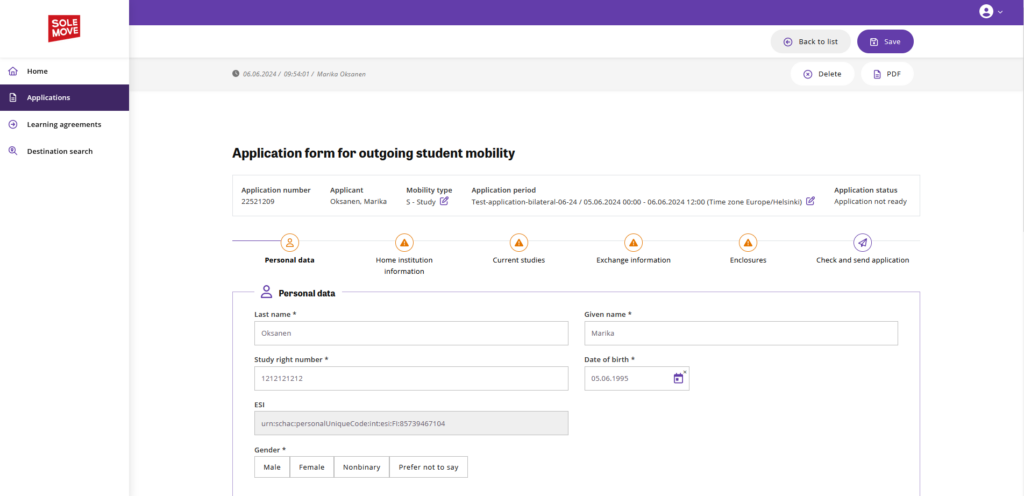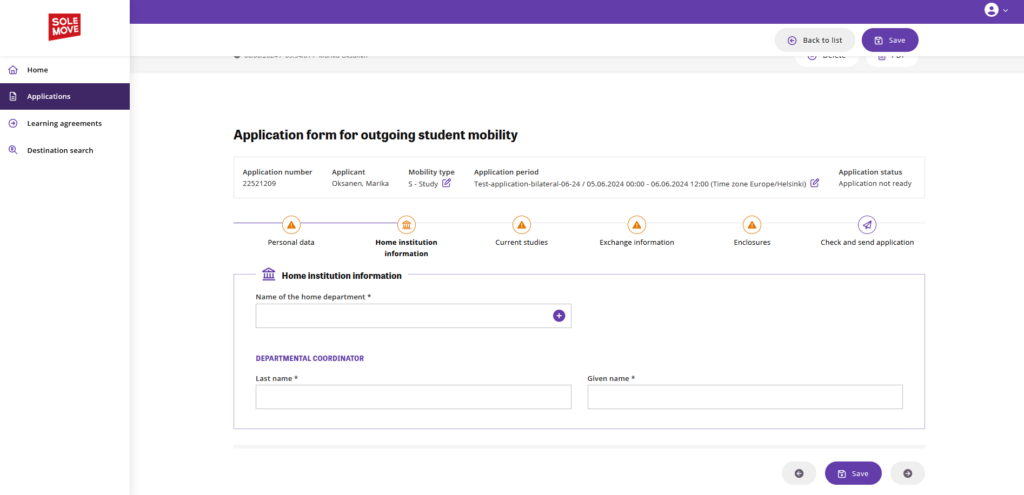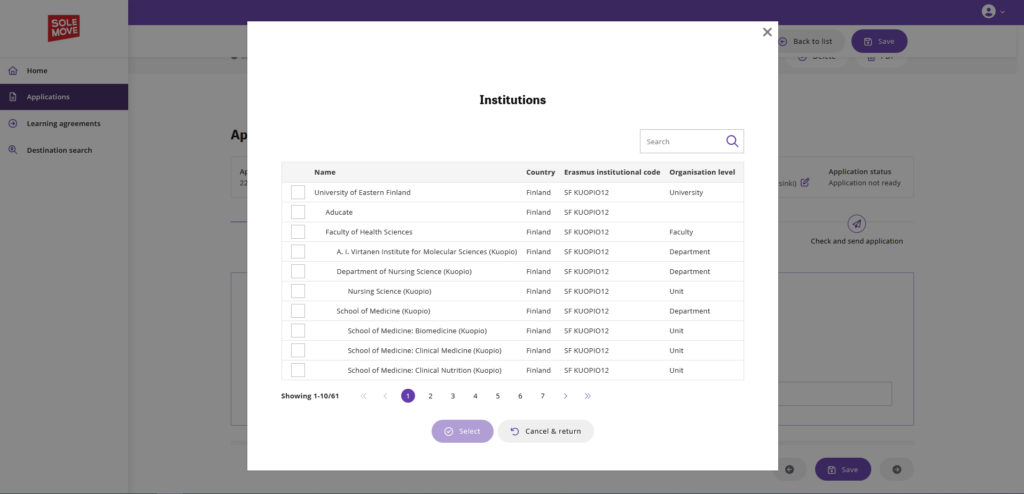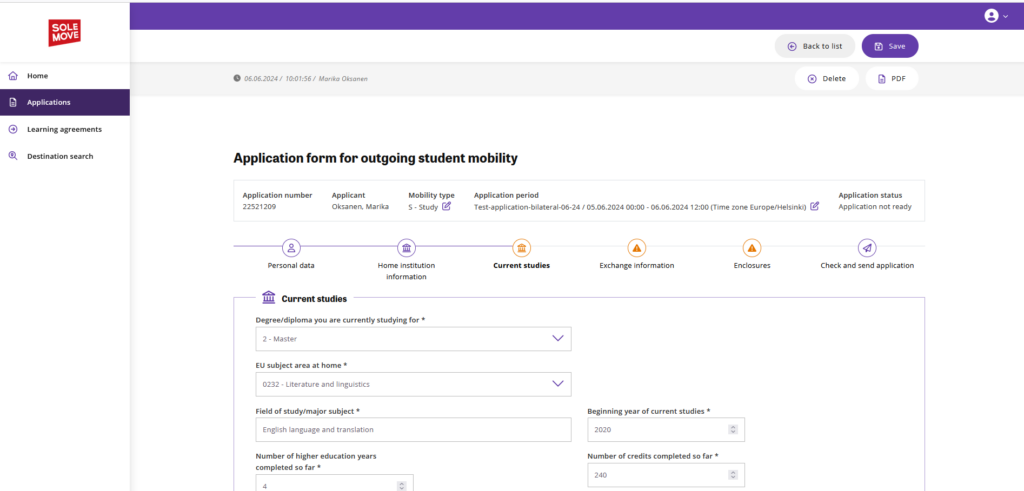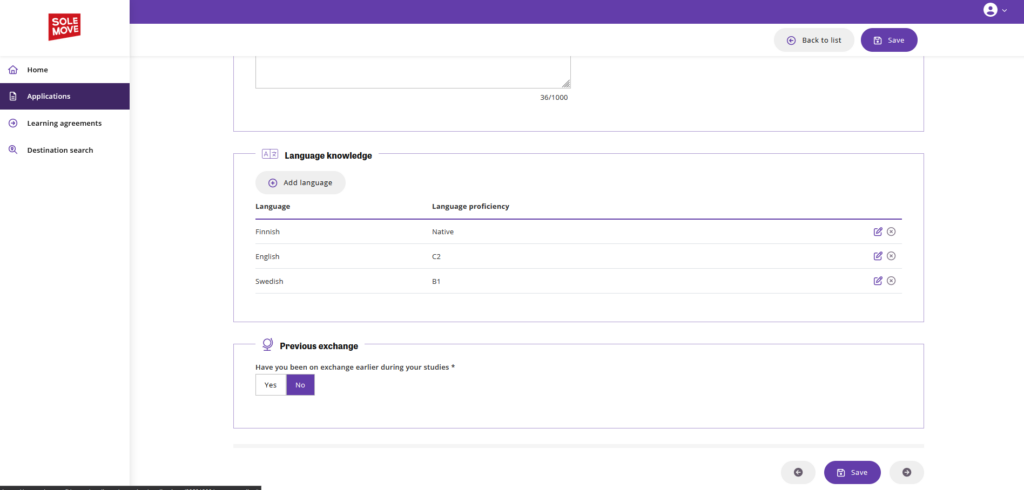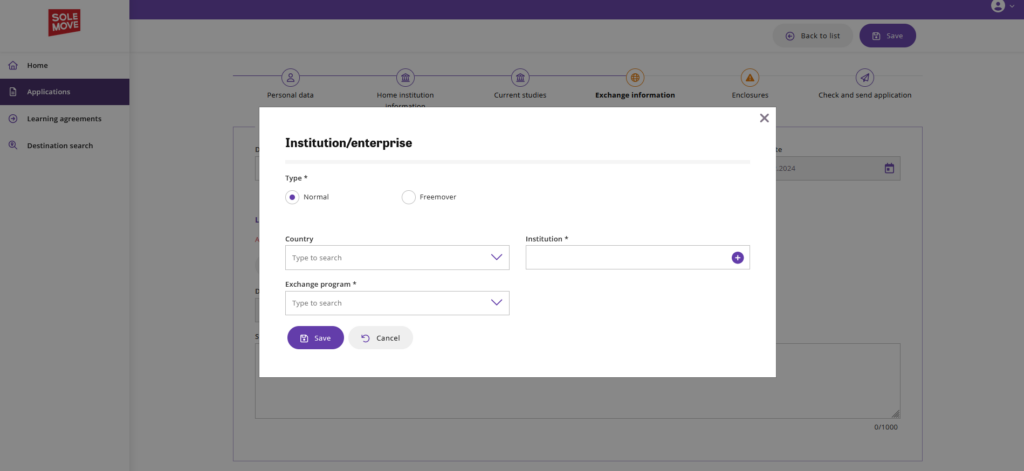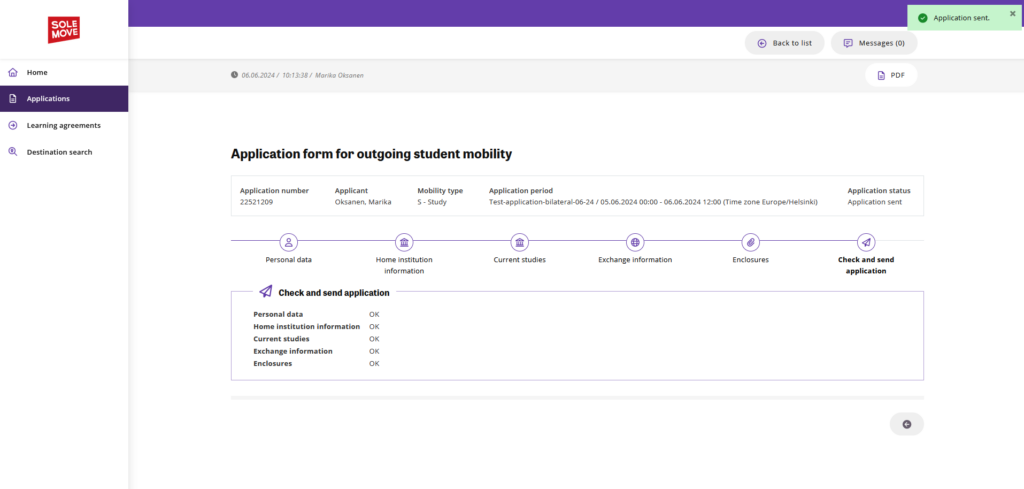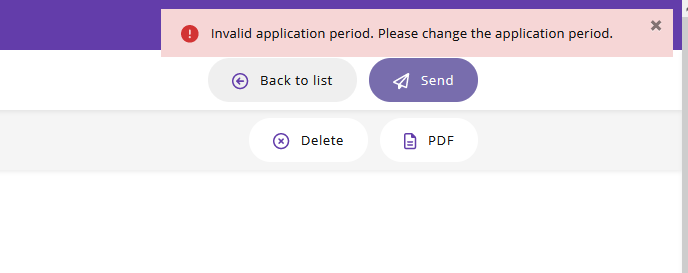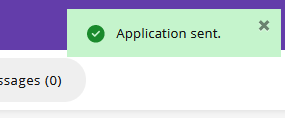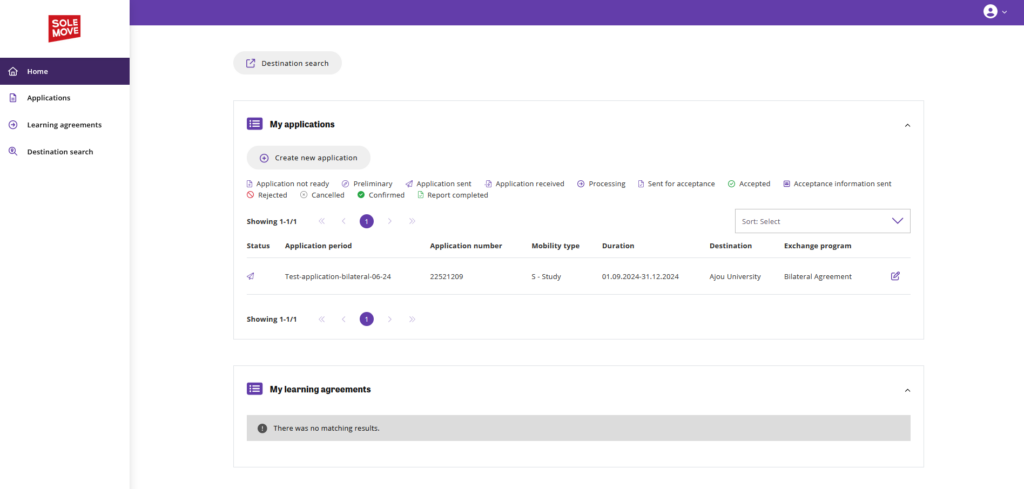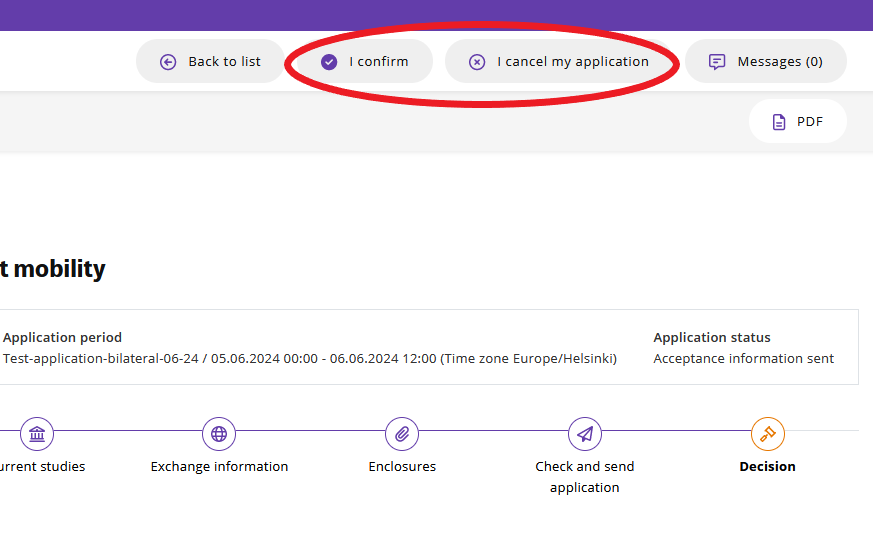This page covers frequently asked questions about student exchange. Questions have been grouped as follows:
- Planning an exchange
- Exchange during studies at UEF
- Applying for exchange
- Studies during the exchange
- Funding the exchange
Why is student exchange a good idea?
Studying abroad often gives a new and broader perspective to your own field of study and offers the chance to take courses not provided by your home university. The exchange period will improve your language and intercultural communication skills. You will make new friends, gain experiences and confidence, and become familiar with a different culture.
Planning an exchange
How should I start planning for my exchange?
You can start by thinking about the following questions:
- Why do you want to be an exchange student?
- Where do you want to go?
- At what stage of your studies do you want to go?
- Which exchange programme suits your plans?
- What do you want to study during your exchange? Your major or minor subject, local languages, something else?
- In what language would you like to study?
- For how long would you like to stay? Will one semester be sufficient? Or would a full academic year suit your plans better?
- How will you finance your exchange?
- Would you like to go by yourself or with a friend/spouse/family?
Where can I go?
There is a wealth of destinations available everywhere in the world (Nordic Countries, Europe, Asia, Africa, Australia, North America, Latin America). The precise number of available destinations varies each year. In the Erasmus+ programme, the destinations are department-/school-specific, while most destinations offered by other exchange programmes and bilateral agreements are available to students of all fields.
How long are the exchanges?
Long-term exchanges are “traditional” semester or full academic year exchanges. The actual duration varies according to the host university’s academic calendar: on average, semester exchanges are typically 4-6 months, while full academic year exchanges are between 9-12 months. The student is not able to choose the duration themselves, they must follow the host university’s academic calendar.
NB! Th exact schedule of the exchange depends on the host university’s academic calendar, and academic calendars can vary greatly between countries and universities. Make sure to check your host university’s academic calendar.
Short-term exchanges are often one month at most. These exchanges can be short-term or intensive courses, i.e., the student will go abroad for a specific course. UEF does not currently offer 1-2 month exchanges, so the exchange periods are either one month long at most (short-term exchange) or full semester/full academic year exchanges.
When can I go?
You can go on exchange after you have completed one year of academic studies. Students are advised to discuss with their study programme coordinator about the best time in their studies for an exchange period.
I am moving abroad/have moved abroad/am living abroad and am completing my studies at UEF remotely. Can I apply for exchange to my country of residence and complete studies at a local institution?
You cannot. The host country for exchange studies cannot be 1) the country where the student’s home university is located or 2) your actual country of residence. For example, if you are a degree student at UEF and live in or are moving to Germany, you cannot apply for exchange in institutions located in Finland or Germany.
If the student’s home country is any country other than the country of residence or the home university’s country, it is possible to apply for exchange to the student’s home country. For example, a degree student at UEF who lives in Germany but is originally from Sweden, can apply for exchange to Swedish institutions, because the student’s actual country of residence is not Sweden.
What kind of insurance is required for the exchange period?
Students going on exchange must have a comprehensive insurance that is valid for the full exchange period. It is a good idea to contact your insurance company to find out the most suitable solution for you. The insurance should cover the most serious situations such as ambulance flights.
Can I cancel my exchange?
You may cancel your exchange for a weighty reason. You should think about whether exchange studies suit your current phase in studies and situation in life before applying. Students from outside the EU/EEA are also recommended to contact their study programme coordinator at UEF to determine if an exchange would affect their tuition fees.
In the event of a cancellation, the student should contact the coordinator at International Mobility Services as soon as possible. If the student has already applied to the host institution, the host institution must also be notified.
Where can I read reports written by previous exchange students?
You can read feedback by previous exchange students through the online application system SoleMOVE (new tab).
- Select “University of Eastern Finland” from the list of universities
- Click on “Exchange destinations Abroad and feedback” in the top bar
- Click “Advanced search” and add any filters, e.g. the country/university/exchange programme/department and click ”Search”
- Click the name of the university you are interested in
- Read reports below under “Feedback”.
Exchange during studies at UEF
Can I go on more than one exchange?
Yes – students are able to go for exchange during Bachelor or Master’s studies. Doctoral students are also able to participate in student exchange. Possible study abroad semester(s) should be taken into account when planning you PSP!
In Erasmus+ funded exchanges (Erasmus+, Nordplus, YUFE), the exchange durations have been limited to 12 months per degree, so bachelor students are able to apply for Erasmus+ funded exchange places or traineeship grants for European traineeships for a total of 12 months during their bachelor studies. Students will have another 12 months of Erasmus+ funding available during their master’s studies. In other non-Erasmus programmes there is no limit.
Can all students apply for exchange?
All (undergraduate/graduate/postgraduate) degree students of University of Eastern Finland, whose studies have progressed normally are eligible for student exchange. Students with a contract of employment are not eligible for student exchange unless the contract expires and is void before the exchange starts and throughout the entire exchange period.
NB! Students from outside the EU/EEA are advised to discuss with their study programme coordinator if exchange studies would extend their studies and/or affect their tuition fee.
Must I be registered as ‘present’ at UEF during the exchange?
Yes – students must be registered as a ‘present’ degree student at the University of Eastern Finland throughout their exchange period. Registration includes the Student Union membership fee and Kela’s student healthcare fee.
Students must be registered as ‘present’ in a degree program (i.e., must be a degree student) in order to have the studies completed abroad included into their degree. Studies completed during an absence cannot be included into the registry. Check instructions and dates for annual registration on Kamu.
Can graduated students go on exchange utilising the alumni study right?
No. Only the students who hold the right to complete a degree at the University of Eastern Finland may go on exchange via the exchange programmes, networks, and bilateral agreements of University of Eastern Finland. Students must be registered as present at UEF throughout their full exchange period, ie. students cannot graduate from UEF during their exchange studies. More information about the alumni study right.
How long are the exchange periods?
The duration of an exchange is normally one semester or full academic year (varies between 3–12 months). The precise duration and timing of the exchange will be determined by the schedule of the host university. You should note that the start and end dates of semesters may differ from those of your home university. Essentially, students are not able to determine the exchange duration themselves, as they are required to follow the host institution’s academic calendar and any requirements they may have regarding student study periods and presence on campus.
Short-term exchanges (i.e., intensive and short-term courses, summer and winter schools etc.) generally last from one week to one month, depending on the course organiser.
Employment at UEF and student exchange – research/teaching assistants, doctoral researchers (i.e. 10% contracts etc.), and other employment contracts at UEF
If a student has an employment contract at UEF, they are considered staff, regardless of the amount of work. It is not permitted to participate in student exchange as staff (i.e. during a valid contract of employment). The employment contract must end and cannot be in effect during the student exchange period. Employment contract should end before the exchange period begins so that the student mobility grants are not considered as wages. It is possible to apply for exchange during a valid contract, but the contract must end before the exchange study period begins.
Bachelor and Master’s degree students must apply for a leave of absence from work well before the exchange period begins. Doctoral students’ contracts must end before the exchange period begins. The rule is the same in long and short-term exchanges.
Student mobility grants cannot be paid during a valid contract of employment, so the contract must end before the grant can be paid.
Staff members at UEF are able to participate in staff exchange, for which there is more information available in UEF intranet (requires UEF login).
Applying for exchange
How do I apply for exchange?
Applying for an exchange is a two-stage process. In the first stage, you apply for exchange at your home university, i.e. you apply to become a UEF candidate for an exchange at a certain host university/exchange programme. The first-stage application is submitted on the electronic application system SoleMOVE. The applicants accepted in the first stage then apply for the actual exchange place from the host university or exchange programme. Every university and programme has a different process for second-stage applications, and the applicants chosen in the first application stage will receive university- and programme-specific instructions for the second stage.
What is a letter of motivation?
A letter of motivation is a free-form text letter in which the student writes about why they have chosen that particular country/university/exchange programme and provides a brief description of their studies and future study and career plans. The letter of motivation is written either in English or in the language of the host country/exchange studies.
NB! Students should not use AI tools (for example Chat GPT) to write their motivation letters. Students should write the letter themselves and justify why they should be selected for exchange in their own words. The use of AI tools in the application may be used as a deciding factor during application processing.
What level of language skills will I need to go on exchange?
Becoming an exchange student does not require perfect language skills, but you should nevertheless take language into consideration when planning your exchange. Courses are increasingly available in English, but some countries and universities may not offer courses in English at all. The number of courses taught in English varies between countries, universities, and even subjects within the same university.
You should always study the language of your host country before going on exchange, whether to learn the basics of a new language or to reactivate previously learned skills.
Will an official language test result (TOEFL, IELTS) be required for the exchange application?
You should find out in good time whether your host university or exchange programme will require an official language test result to be enclosed with your application in the second stage. Official language test results are normally not required from students participating in exchange programmes. However, there are exceptions to this rule, such as the ISEP programme (language certificate requirements must be checked for each individual university), Hokkaido University, and some universities in the United States, Canada, and Australia.
Where can I take an official language test (TOEFL or IELTS)?
TOEFL language test result is mostly required from students applying for universities in English-speaking countries. In Finland, the TOEFL language test (the link opens up to a new window) can be taken in Helsinki or online and should be booked well in advance.
NB! TOEFL offers different kinds of tests: TOEFL iBT is a test that measures academic language skills and is widely accepted by universities around the world. TOEFL Essentials is a shorter test that measures more generic vocabulary with little academic language. Essentials may not be accepted as a certificate of language skills, as it is more general in content than iBT. Please remember to check your host university’s requirements before booking your test.
The other widely recognised language test is the IELTS (the link opens up to a new window) and these tests are also organised in Helsinki.
A language test is usually required only in the second stage of applying, after the applicant’s home university has approved them as an exchange candidate.
What is a letter of recommendation?
Some host universities or exchange programmes require an academic letter of recommendation to be appended to the second-stage application. You can ask for a recommendation from someone who is a member of the academic staff of your home department/school (e.g. a teacher, lecturer, or professor) who knows you as a student. Follow the guidelines of the host university or exchange programme regarding the academic letter of recommendation.
Do I need a health certificate for student exchange?
Some host universities may require a health certificate to be attached to the second-stage application. Usually these universities have their own fixed forms that should be filled out by a doctor. It is worth noting that the FSHS no longer grants appointments to fill out health certificates for voluntary exchanges or traineeships abroad. If an exchange or traineeship is a compulsory part of a student’s degree, FSHS may give appointments for filling out health certificates. If the exchange or traineeship is voluntary, students should seek appointments from public or private healthcare providers. The University does not compensate for any potential costs related to obtaining health certificates.
Some countries may also require other attachments to the health certificate, for example vaccination records (especially for the medical fields) or x-rays. Students should always follow host university-specific instructions regarding health certificates.
A GPA/average is required at the exchange application – How do know what is my GPA?
GPA (Grade Point Average) is not calculated at University of Eastern Finland. You can write ’not applicable’ in this section if the application form allows for it. If the host university asks for the GPA again, please contact UEF International Mobility Services.
If a GPA is required in the application, it is possible to convert the 5-point scale used at UEF to 4.0. You can use the Scholaro-calculator (new tab) to convert your numerically graded courses. Courses graded as Pass/Fail cannot be converted.
Studies during the exchange
What is a learning agreement? When do I need to sign it?
A Learning Agreement (LA) is a study plan into which the student lists the planned exchange studies. The LA is signed by the contact person for international matters at the department/school of the student’s major subject and by the contact person of the host university. By signing the LA, the department/school agrees to credit the studies listed in it to the UEF degree.
The Learning Agreement is made before the beginning of exchange studies. If there are changes to be made to the LA, the changes must be recorded into the Changes to Learning Agreement document. More detailed instructions are available in the information package for outgoing exchange students.
How many credits do I need to get while on exchange? What is the minimum?
Students are expected to make progress in their studies also during the exchange. When you are planning your exchange studies and making your Learning Agreement, the minimum number of ECTS is 20 to 30 ECTS. The students should follow the host university’s instructions and regulations on matters such as the minimum number of courses. UEF will not charge back the mobility grant if you get less ECTS than recommended.
The sufficient progress of studies (5 ECTS credits per month of financial aid) is a general condition of Kela’s financial aid for students also during the exchange studies.
Please note that students should prioritize the host institution’s studies during the exchange period: we recommend that students should adhere to the host institution’s instructions and regulations regarding the number of courses they will take during their exchange. If a host institution has not defined a minimum/maximum number of courses for exchange students, students are recommended to take approximately 20-30 ECTS worth of courses per semester at the host institution.
How do I include the courses I complete during the exchange into my degree?
Inclusions are done by each department’s own processes after the exchange period has been concluded. Students need a transcript of records from the exchange university in order to apply for inclusion. We recommend contacting your departmental coordinator of international affairs in order to discuss course inclusion into your degree.
Can I work on my thesis during the exchange or traineeship?
You can write the thesis included in your degree during the student exchange, but this requires making arrangements prior to the exchange. You can collect or analyse material for the thesis if you have agreed on this in advance with your thesis supervisor at the University of Eastern Finland and with the host university before the exchange period begins. If the thesis is accepted as part of your exchange study plan, you must have a designated academic co-supervisor at the host university. It is a good idea to start planning how to connect the thesis work to the exchange studies in good time before applying for exchange. You can get started by contacting your thesis supervisor at the University of Eastern Finland and asking them for suitable contacts at the partner universities of your department/school. You can also search for suitable contacts in the partner universities. The progress of the thesis work during the exchange is verified by a certificate signed by the academic co-supervisor at the host university. The student must request a certificate at the end of the exchange period.
NB! Exchange placements must be applied for during UEF’s regular application periods. Please note that International Mobility Services cannot guarantee exchange placements for any applicant regardless of possible separate arrangements. It is recommended that students only make arrangements required for doing their thesis abroad after being selected as UEF’s candidate for exchange.
Erasmus + traineeships are not intended for thesis work. If you are conducting a laboratory traineeship at a host university, you are allowed to collect and analyse material for your thesis during the traineeship. The University of Eastern Finland must credit the traineeship as part of the student’s degree (with the exception of traineeships for recent graduates).
Students are allowed to work on their thesis during the exchange in their free time. As long as a minimum of 20 ECTS is accumulated from completing host university courses, it is enough that the student has permission from their thesis advisor from UEF to work on their thesis during the exchange.
Funding the exchange
How much are the tuition fees for outgoing exchange students?
Students going abroad for student exchange at UEF’s network and agreement partners do not pay tuition fees to the host university. If the student is paying tuition to UEF, they will need to pay their tuition to UEF as usual, but they do not need to pay tuition fees to the host university. The student must be registered as present at UEF throughout the exchange, so they will need to pay the Student Union membership fee and Kela’s student healthcare fee for the exchange period.
In Freemover/Visiting student exchanges and ISEP Direct exchanges, students will pay tuition fees to the host university. This depends entirely on the host university.
How much does it cost to go abroad for exchange studies?
It is difficult to estimate the total costs of going abroad, because cost of living is very country-specific. In general, the student is responsible for their own travel, insurance, accommodation and living costs during the exchange.
How will I get by financially when studying abroad? Is financial aid available for exchange studies?
UEF students participating in the university’s exchange programmes (with the exception of the ISEP Direct programme) are exempt from tuition fees at their host universities and they receive a mobility grant from the University of Eastern Finland (or from the network in case of the subject-specific Nordplus networks). The students are required to cover the accommodation and costs of living on their own, and these costs naturally vary by destination. Additional costs are incurred from travel, insurance, and other such matters.
The students who are receiving financial aid from Kela for their studies are eligible for the study grant, housing supplement for studies abroad, and a study loan for the duration of the exchange, provided that the exchange studies are included in the student’s degree at the home university.
How can I apply for the mobility grant?
The mobility grant is awarded to all the students who go on exchange via UEF exchange programmes or bilateral agreements and who are accepted for exchange by the host university. The mobility grant can be paid after the student has submitted a mobility grant form with a copy of the acceptance letter or email sent by the host university to UEF International Mobility Services. It will take about 4 weeks to process the payment after both documents have been submitted, and the mobility grant can be paid a month before the beginning of the exchange at the earliest. Holiday periods may cause a delay in the payment process.
The students who go on exchange via a subject-specific Nordplus network will receive the mobility grant from the network which will send the instructions to the student by e-mail. If the network cannot issue a mobility grant to the student, the mobility grant can be awarded by University of Eastern Finland. In this case, contact UEF International Mobility Services.
When is the grant paid?
UEF payment dates for mobility grants are twice a month, the 15th and last day of the month. If the payment date is on a weekend or midweek holiday, payment is scheduled for the previous work day. In long-term exchanges, grants are primarily paid approx. 1 month before the exchange at the earliest, provided that the student has completed and submitted all the required documents well in advance. In short-term exchanges, grants are primarily paid on the last payment date before the mobility starts, or one month before the mobility starts at the earliest, provided that the student has completed and submitted all the required documents well in advance.
NB! Grants are not paid retroactively after the mobility has ended – if grant documents have not been submitted in advance before the exchange, or immediately at the start of the exchange (in long-term exchanges in case of delays), grants will not be paid.
Can you get two mobility scholarships at the same time?
For the same period, you cannot get two mobility scholarships from International Mobility Services or Student and Learning Services. For example, if you are granted a mobility scholarship for your exchange period from International Mobility Services, you cannot get an Erasmus+ traineeship grant for the same period. It is allowed to accept scholarships from other parties such as foundations for the same mobility period. Please contact International Mobility Services, if you have any questions related to mobility grants.

